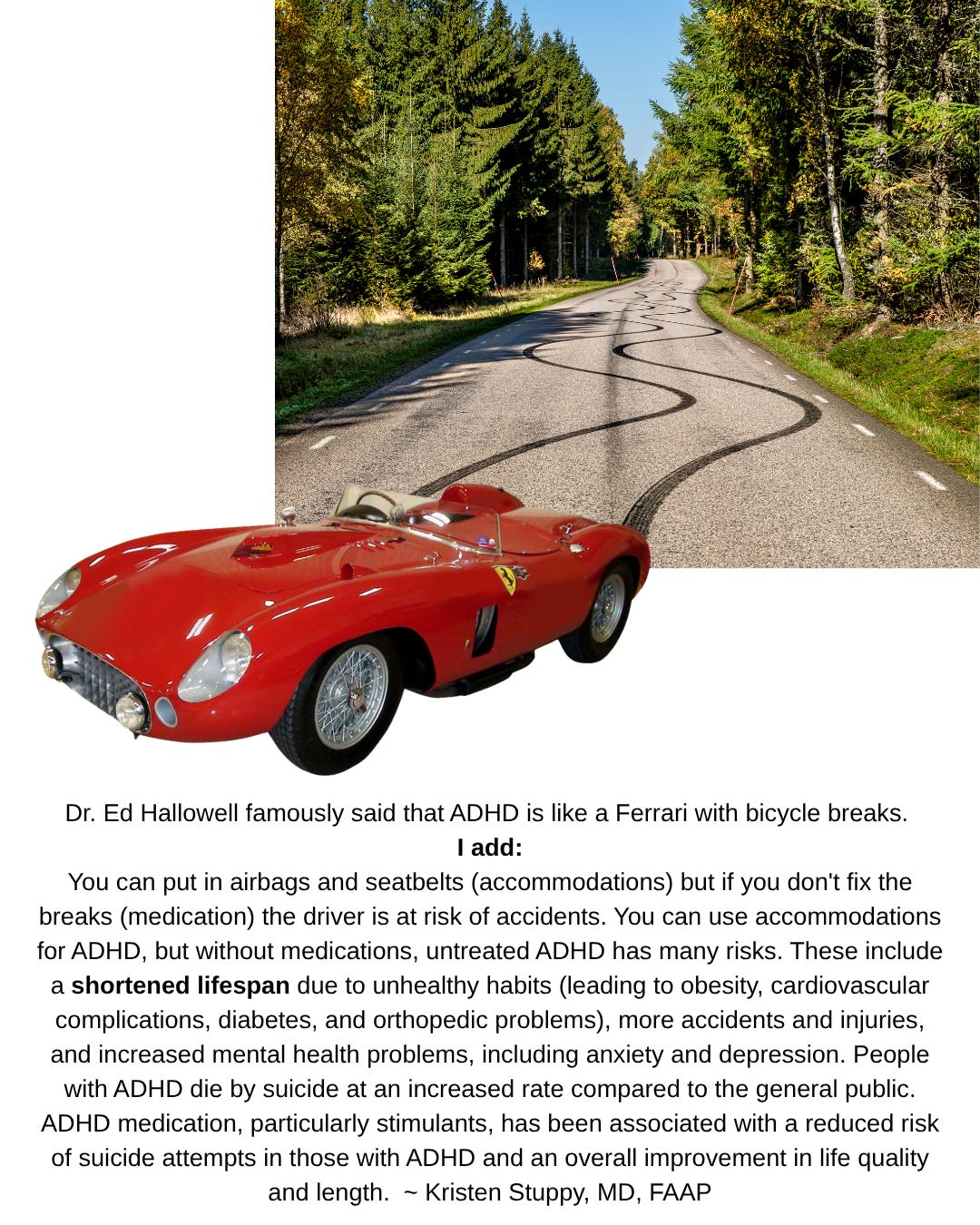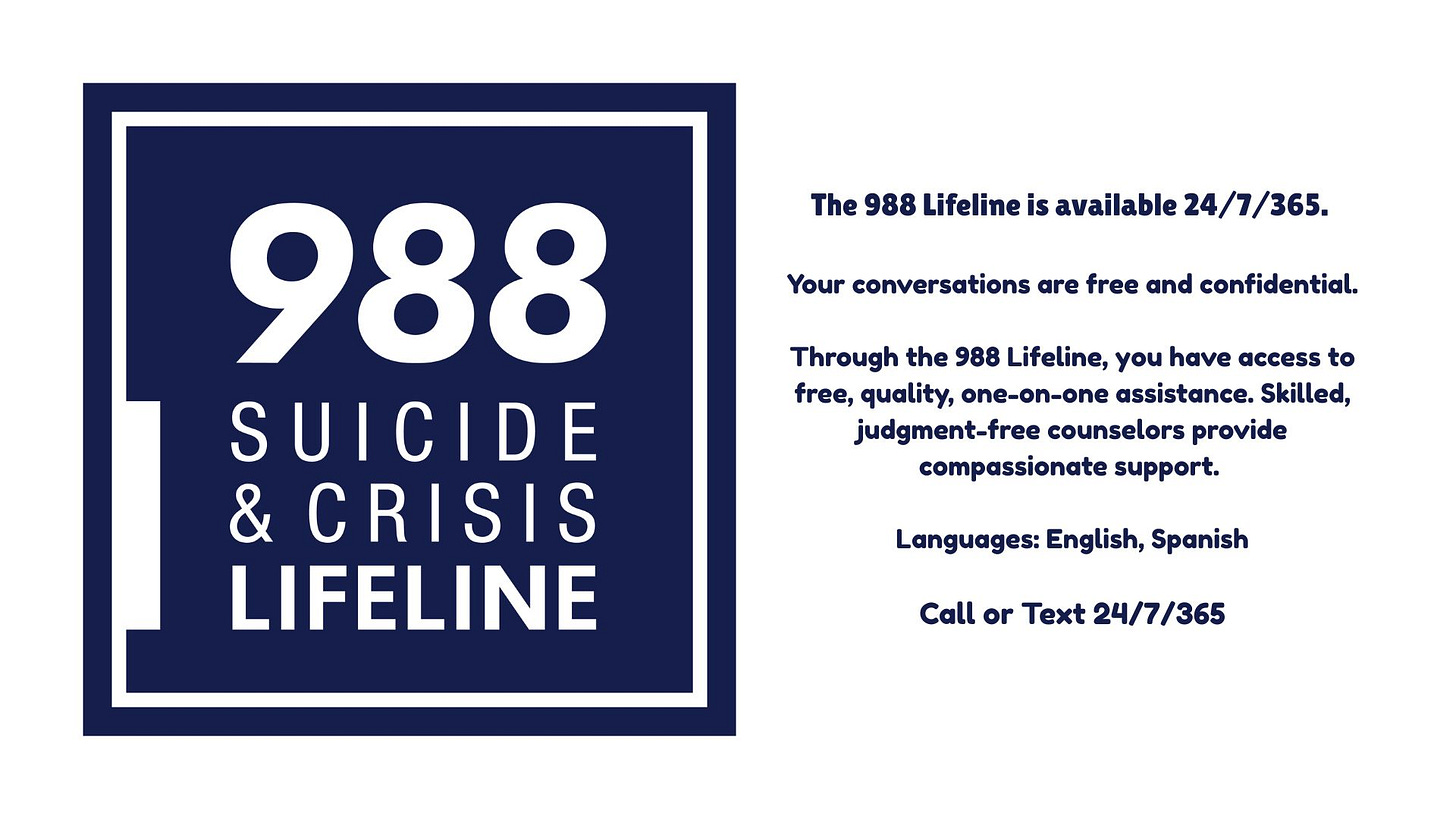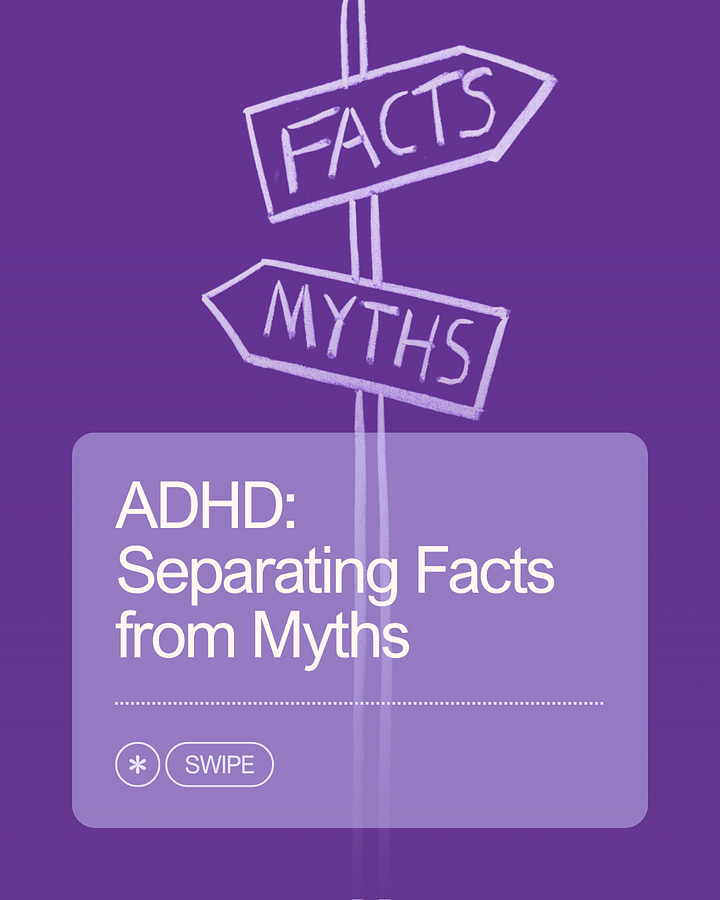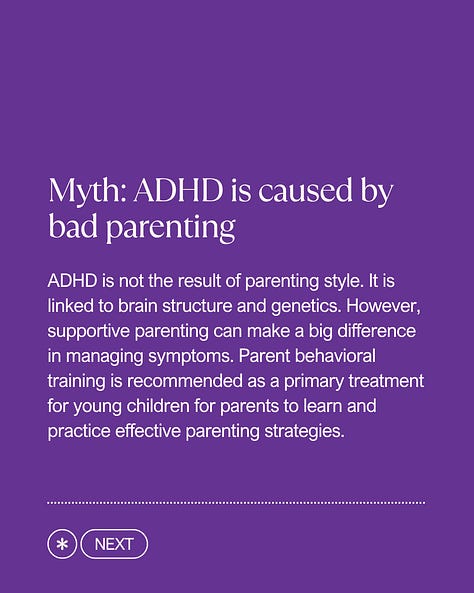ADHD is one of the most common but misunderstood neurodevelopmental conditions. While awareness has grown in recent years, misinformation and stigma persist. The recent MAHA Commission’s report unfortunately misrepresents much about ADHD, overemphasizing lifestyle and disregarding the genetic components. This may lead to more stigma and can prevent individuals from getting a proper diagnosis or the support they need. Unfortunately, not recognizing and treating ADHD with proven treatments can lead to significant consequences. Learn more in “Why Early Diagnosis and Management of ADHD Matters”.
Let’s take a closer look at some of the most common myths about ADHD — and the facts that bust them.
Myth #1: ADHD is just an excuse for laziness.
Fact: ADHD is a neurodevelopmental disorder that affects the brain’s ability to regulate attention, emotions, and motivation. While it’s true that everyone can be distracted or impulsive occasionally, ADHD involves chronic, impairing symptoms that interfere with daily functioning across settings (school, work, home). People with ADHD often work much harder than others just to stay on task, but their challenges are invisible.
Myth #2: Only children have ADHD.
Fact: While there are treatments to help manage symptoms, there is no cure. Symptoms change over time as skills are learned and the brain matures, but many adults continue to struggle with focus, impulsivity, and executive function. Life stressors can affect how significantly symptoms are noted, so there may be fluctuations in how significantly symptoms present at any given time.
Myth #3: All people with ADHD are hyperactive.
Fact: Not everyone with ADHD is hyperactive. There are different presentations, including inattentive type, hyperactive-impulsive type, and combined type. Those with the inattentive type may appear daydreamy or disorganized rather than energetic or restless. They may fall under the radar and fail to get diagnosed, which can lead to significant problems in life.
Myth #4: ADHD is caused by bad parenting.
Fact: ADHD is not the result of parenting style. It is linked to brain structure and genetics. However, supportive parenting can make a big difference in managing symptoms. Parent behavioral training is recommended as a primary treatment for young children for parents to learn and practice effective parenting strategies.
Myth #5: ADHD medications are dangerous and overprescribed.
Fact: When monitored appropriately, stimulant and non-stimulant medications for ADHD are safe and effective. They work by regulating brain chemicals involved in attention and impulse control to help improve focus and reduce impulsivity, and are one part of a comprehensive treatment plan. Studies suggest that proper use of these medications in children can help prevent Substance Use Disorder (SUD) and other significant risks associated with ADHD. Medication is not a “quick fix” but can be a helpful part of a comprehensive treatment plan that may include therapy, coaching, and accommodations.

Myth #6: People with ADHD just need to try harder.
Fact: ADHD is not a willpower issue. It’s a brain-based challenge with motivation, memory, and task initiation. People with ADHD often try very hard — and feel frustrated when their effort doesn’t lead to success. This can lead to shame, burnout, low self-esteem, anxiety, depression (and increased suicide risk), and generally unhealthy habits.
Myth #7: ADHD isn't real—everyone gets distracted sometimes.
Fact: It’s true that everyone experiences distraction or impulsivity now and then. However, for someone with ADHD, these symptoms are chronic and impair daily life across multiple settings, such as school, work, and home. ADHD is a medical diagnosis recognized by the American Psychiatric Association.
Myth #8: People with ADHD can’t succeed.
Fact: Many people with ADHD are creative, passionate, and successful. With support, accommodations, and self-understanding, they can thrive in school, careers, and relationships.
The Bottom Line
ADHD is real.
It’s complex.
And it’s manageable.
Understanding the facts helps break the stigma, promote earlier diagnosis, and empower individuals and families. Whether you’re navigating ADHD yourself or supporting someone who is, busting these myths is a step toward greater empathy and better outcomes.
Remember: You’ve got this!
Resources for Learning More About ADHD
If you or someone you love is living with ADHD, you're not alone — and there are many trusted resources to help you understand, manage, and thrive with this condition. Here are some valuable starting points:
🔹 Education & Advocacy
CHADD (Children and Adults with Attention-Deficit/Hyperactivity Disorder)
www.chadd.org
Offers support groups, webinars, and evidence-based resources for individuals and families across the lifespan.Teacher to Teacher
CHADD has developed Teacher to Teacher - a multisession, interactive training course developed and taught by expert educators to give practical strategies and resources to educators working with students with ADHD.
ADDA (Attention Deficit Disorder Association)
www.add.org
Offers virtual support groups, webinars, and coaching directories for adults with ADHD.Understood
www.understood.org
A great resource for parents, educators, and young adults navigating learning and thinking differences, including ADHD.Find the ADHD Girls
A project by the Inattention Coalition to help identify children with inattentive ADHD (often girls) by their 8th birthday.
TEACH Me ADHD
TEACH Me ADHD offers fun, interactive online programs for kids to take with their parents to learn about ADHD together and for teens to take alone or with peers. (Disclaimer: I am one of the educators for these programs.)
🔹 Books Worth Reading
Driven to Distraction by Dr. Edward Hallowell and Dr. John Ratey
Smart but Scattered by Peg Dawson & Richard Guare
Taking Charge of ADHD by Dr. Russell Barkley
You Mean I'm Not Lazy, Stupid or Crazy?! by Kate Kelly and Peggy Ramundo
Understanding Girls with ADHD by Kathleen G. Nadeau, Ellen B. Littman and Patricia O. Quinn
🔹 Podcasts
All Things ADHD by CHADD All Things ADHD
ADHD Experts Podcast by ADDitude Magazine ADHD Experts Podcast
Hacking Your ADHD Hacking Your ADHD
ADHD ReWired ADHD ReWired
ADHD KC Conversations – I’m a host of ADHD KC Conversations! We highlight local voices sharing stories, strategies, and support. Short podcasts introduce upcoming speakers and longer podcasts feature event recordings. Visit ADHDKC for upcoming events.
🔹 Professional Help
Find a Specialist: Look for psychologists, psychiatrists, pediatricians, or neurologists with experience in ADHD diagnosis and treatment. Ask your PCP for help or check with your local CHADD chapter. In the KC Metro, find local specialists on ADHDKC’s Resource Page.
School Support: Learn about IEPs (Individualized Education Programs) and 504 Plans for school accommodations. Understood is a great resource for this.
🔹 Support Groups & Community
ADHDKC (Kansas City area)
www.adhdkc.org
Offers monthly meetings for parents, teens, and adults, both in-person and online. A great place to find local events, resources, and connection.Find your local CHADD Chapter
💬 Need Support Now?
If you’re feeling confused or are unsure where to start, reach out to your primary healthcare provider or contact a local support organization.
Early intervention and education can make a big difference.









